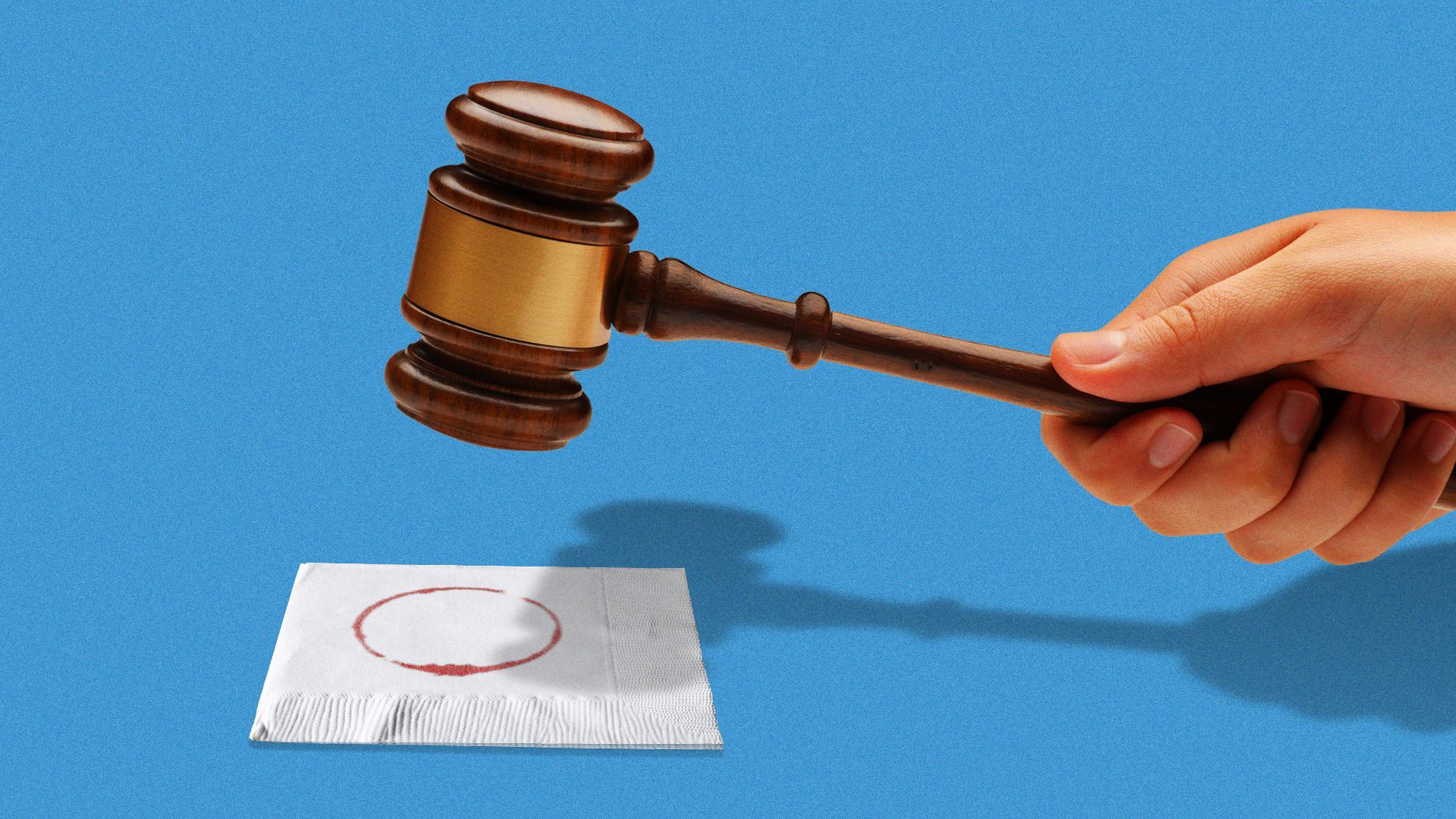Arkansas' alcohol rules, explained
Add Axios as your preferred source to
see more of our stories on Google.

Illustration: Maura Losch/Axios
Arkansas, which is among the states with the highest number of dry counties in the U.S., has a patchwork of laws surrounding alcohol that has been evolving for decades.
What happened: All counties in Arkansas were automatically considered wet when Prohibition ended in 1933.
- Then, Initiated Act 1 in 1942 gave counties the option of going dry, Scott Hardin, spokesperson at the Arkansas Department of Finance and Administration, tells Axios.
The big picture: Arkansas makes you fight for your right to party, requiring 38% of registered voters in a county to sign a petition just to get the option to go wet on a ballot.
- Most issues require petitions signed by just 10% of people who voted in the last gubernatorial election.
State of play: The majority of Arkansas counties — 44 of 75 — are wet. Grassroots efforts to turn some dry counties wet exist, with Van Buren and Sevier counties successfully doing so in 2020.
- But Hardin said he was not aware of any efforts to overhaul alcohol laws statewide.
Dry counties cannot have bars or sell alcohol in stores.
- Yes, but: Restaurants can serve alcoholic beverages with a permit.
- Craighead and Faulkner counties, which are dry and have population centers like Jonesboro and Conway, have the most special permits in the state. You see a lot of "bar and grills."
It's state law that bars close by 2am.
- Yes, but: There are a few bars like Midtown Billiards in Little Rock and Arlie Muck’s Tavern in Fort Smith that are still open until 5am because they have grandfathered permits.
The state limits the number of liquor stores a wet county can have.
- Yes, but: There's no limit on the number of bars.
The state loosened rules in 2017 on selling wine in grocery stores.
- Yes, but: Grocery stores still can't sell hard liquor.
The intrigue: The alcohol industry is sometimes one of the strongest opponents to loosening restrictions because retailers in wet counties benefit from customers who visit from dry counties.
- In 2014, Arkansans voted down an amendment that would have allowed alcohol sales statewide. Liquor stores in wet counties donated heavily to campaign against the amendment.
